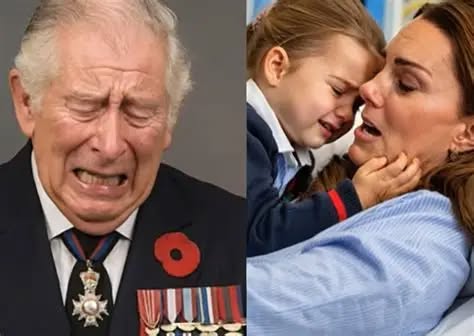The air in the room thickened into something almost unbreathable as Prince William stared at his father, unable to reconcile the King before him with the broken man confessing to a past wrapped in tragedy and regret. Each word Charles uttered seemed to rip open an old wound the world thought had scarred over, forcing William to confront a truth so raw, so unthinkable, that it threatened not only his memory of his mother, but the very foundation of the life he’d built on carefully managed silence and duty. And as the confession reached its most devastating point, William realized this was not just about the past—it was about a secret powerful enough to fracture the future in ways no one could yet imagine…
In the long, echoing pause that followed, William felt the weight of two worlds pressing down on his shoulders: the son who had lost his mother, and the heir who was expected to protect the Crown at any cost. Charles’s confession did not offer the neat closure of a headline or the cold clarity of an official inquiry. Instead, it opened a chasm of moral questions—about complicity, silence, and the quiet bargains made behind palace walls. For the first time, William understood that the truth was not a single moment, but a lifetime of choices that could never be fully undone.
He drew a long breath, realizing that forgiveness, if it ever came, would not erase what he had just heard. Yet walking away was impossible. The monarchy could survive scandal, but his children deserved a legacy not built entirely on buried pain. As father and son faced each other, what passed between them was not absolution, but a fragile, necessary beginning: an agreement that the next chapter of their family’s story would not be written in the same unforgiving shadows.
